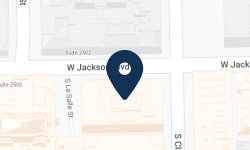Fixing the ALJ Backlog
In 2014, the American Hospital Association sued the Secretary of Health and Human Services to compel HHS to clear the delay in the Medicare administrative appeals process and to comply with the statutory ninety-day time frame for Administrative Law Judge hearings. (The August 11, 2017, court of appeals opinion can be found here.)
Congress directed HHS to establish an appeals process for denied Medicare reimbursement claims and directed that the appeals process be completed within certain time parameters. The entire appeals process was designed to take less than one year to complete and set time limits on each stage of the appeal: 60 days for stage one, the redetermination; 60 days for stage two, the reconsideration; 90 days for stage three, the hearing before the ALJ; and 90 days for stage four, the hearing before the Medicare Appeals Council. The fifth stage is judicial review in a district court. For many years the appeals process functioned within these parameters.
Beginning in 2001, there was an increase in appeals. This increase, which was dramatic and unexpected, was caused by a large number of new beneficiaries, and providers appealing almost every denied claim. Additionally, and perhaps most importantly, under the Medicare Recovery Audit Program, HHS hired recovery audit contractors known as RACs to review every claim paid and identify overpayments. The RACs then sought to recoup those overpayments, which could have been paid to the provider years ago. When a RAC identifies an overpayment, the provider could either pay it or file an appeal. Many providers decided to file an appeal, and appeals increased from 56,600 in fiscal year 2011, to 607,402 appeals waiting for an ALJ hearing in June 2017. Although providers can skip this level and escalate the appeal, providers forfeit certain rights and have been reluctant to do so. Without some form of relief, the backlog is expected to grow to over 950,000 by 2021 and some claims which have already been filed are expected to take over 10 years to complete.
Because of this backlog, the plaintiffs filed suit to obtain an order compelling HHS to clear the backlog and comply with the statutory 90-day time frame for ALJ hearings. The district court granted HHS’s motion to dismiss, reasoning that Congress was aware of the problem and could address it. At the first appeal, the appellate court reversed and asked the district court to conduct a balancing test and determine if compelling HHS was appropriate. On remand, the provider-plaintiffs set forth two proposals, one directing HHS to take certain actions, and the other setting a suspense date to meet certain goals. The district court decided to direct HHS to meet certain goals: reduce the ALJ backlog by 30% by December 31, 2017, by 60% by December 31, 2018, by 90% by December 31, 2019, and by 100% by December 31, 2020. HHS appealed and the case was once again before the appellate court.
Noteworthy are the appellate court’s observations calling HHS’s contentions “suspect” and sharing the district court’s “skepticism” that HHS has done all it can. Legally however, the appellate court was tasked with reviewing the district court’s order directing HHS to reduce the backlog by 2021. The appellate court set forth the legal premise: that when a person or agency ought to do something, comply with a statutory deadline, the law implies that the act must be possible to perform. ALJs have the ability to review about 90,000 appeals per year, yet HHS received between 200,000 – 250,000 appeals per year, even in those years when the RAC program was suspended. HHS cannot lawfully settle claims that are without merit yet the only way to reduce the backlog was to settle claims en masse without proper review. A court cannot require an agency to break the law or perform an impossible task. Therefore, appellate court sent the case back to the district court to determine if lawful compliance with the early timetable was impossible, and to make a finding the HHS can lawfully comply with any timetable imposed.
For more information about provider appeals, visit Rosenblat Law or contact Mike Rosenblat at (224) 331-1611.
The information and articles on this website are for general information only and are not intended and should not be taken as legal advice.















